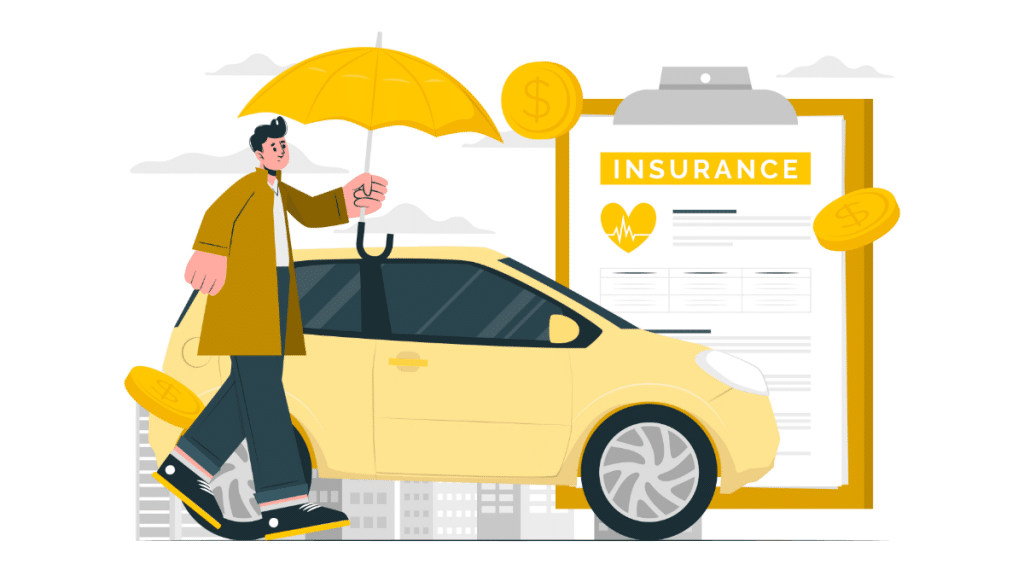For certain kinds of business that may rely on vehicles for some operational requirements, Commercial Vehicle Insurance is an extremely important component that you cannot ignore. Whether you operate a single delivery van or a fleet of trucks, this insurance not only meets legal requirements but also shields your business from significant financial losses in case of accidents, theft, or other unforeseen events.
To help you understand Commercial Vehicle Insurance and its process, we at Chola MS have listed out six essential tips in this blog to keep in mind when planning to buy it.
What is Commercial Vehicle Insurance?
Commercial Vehicle Insurance, also known as Commercial Auto Insurance, Commercial Motor Insurance, Commercial Car Insurance, Truck Insurance, Fleet Insurance, etc., is a specialised business insurance policy that protects vehicles used for work-related purposes. This insurance safeguards a business from liabilities arising from accidents, as well as physical damages to its vehicles. It is designed to cover a variety of vehicles, including company cars, box trucks, food trucks, work vans, and service utility trucks. By offering coverage for both liability and physical damage, Commercial Vehicle Insurance ensures that businesses can continue their operations smoothly, even in the event of vehicle-related incidents.
1. Understand Your Coverage Needs:
The first step in buying Commercial Vehicle Insurance is knowing what kind of coverage your business needs. Different businesses have different requirements based on the types of vehicles they use and what they do. Common coverage options include liability insurance, which covers damages to others, collision coverage, which pays for repairs to your vehicle if it’s in an accident; and comprehensive coverage, which protects against things like theft or vandalism. Make sure to assess your business risks and choose a policy that covers all possible situations.
2. Evaluate the Value of Your Vehicles:
It is important to accurately evaluate the value of your vehicles to ensure you get the right insurance coverage. Overestimating could mean higher premiums, while underestimating may leave you financially vulnerable in case of an accident. Consider factors like the age, condition, and current market value of your vehicles. Also, if you have made any modifications, make sure these are included in your insurance policy to avoid gaps in coverage.
3. Shop Around and Compare Quotes:
Insurance premiums can vary among different providers, so it is wise to research and compare quotes from multiple insurers. When comparing quotes, pay attention to the coverage limits, deductibles, and any exclusions or additional benefits included in the policy. Online comparison tools can be helpful but also consider speaking directly with insurance agents who can provide personalised advice based on your specific needs.
4. Do Thorough Research & Review Details:
Not all insurance companies provide the same quality of service. Explore various insurance providers and their offerings before finalising one company. Thoroughly review the policy details, terms and conditions, and any disclosures provided by the insurer. An insurer with a good reputation and strong finances is more likely to provide reliable service and handle claims quickly, which is important during stressful situations.
5. Consider the Total Cost of Ownership:
While the monthly or annual premium is an important factor in choosing an insurance policy, it is also important to consider the total cost of ownership. This includes out-of-pocket expenses like deductibles, as well as any potential discounts you might qualify for. Some insurers offer discounts for bundling multiple policies, maintaining a clean driving record, or implementing safety measures such as GPS tracking and driver training programs. Taking advantage of these discounts can help lower your overall insurance costs.
6. Review and Update Your Policy Regularly
Your business needs can change over time, so it is important to check your insurance policy regularly and make updates as needed. This could mean adding new vehicles to your lineup, increasing your coverage limits, or changing your deductibles. Regularly reviewing your policy helps ensure you have enough coverage and prevent any gaps that could leave your business at risk.
Conclusion
Buying Commercial Vehicle Insurance is an important task that needs careful thought and planning. By understanding your coverage needs, accurately valuing your vehicles, comparing quotes from different insurers, checking the insurer’s reputation, considering the total cost, and regularly reviewing your policy, you can get the right insurance to protect your business.
Following these steps will give you peace of mind, knowing that your vehicles and business are well-protected against any unexpected events.
